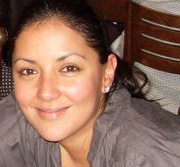
Miami’s Ashoka office to help build social entrepreneurship in South Florida
After spending nearly three years boosting social entrepreneurship in the Americas, Ashoka’s Lorena García Duran is setting her sights on South Florida.
In addition to launching the Miami office for the international group promoting social entrepreneurship, García Duran is busy preparing for its upcoming Miami Ashoka summit, scheduled for May 9-11. The event will bring together business people, journalists and the social sector to network and collaborate on ideas. The conference, supported by Knight, looks to connect social entrepreneurs based in South Florida like Connie Siskowski, whose Palm Beach County-based organization helps empower students who are the primary caregivers to elderly, ill or disabled family members.
Today’s opening session “The Future of Social Entrepreneurship” will be livestreamed starting at 1:30 p.m. EST. The session features Bill Drayton, CEO of Ashoka, Alberto Ibargüen, President and CEO of Knight Foundation and Matthew Bishop, editor of the Economist.
In a conversation with Knight, García Duran described the opportunities for changemaking in South Florida. Knight Foundation: Why did Ashoka decide to open an office in Miami? What were some of the opportunities? LD: Our researchers gave us four cities to explore: Chicago, L.A., New York and Miami. In Miami, we found a region that not only had significant ties to Latin America, but also had a broader perspective and more potential for impact. Of course, South Florida is more than just Miami and we found that the larger community was becoming a hub of successful young business people from all over the world. There were strong ties to the Latin American community, the Jewish community and the Indian community. When we started meeting and connecting with successful business and professional people, we learned they wanted to be part of change, but that they weren’t necessarily attracted to common philanthropy or charity, even though they wanted to be involved in social change. We started to build that hub of people as we continued to learn about what was really going on in the community. We found the community was an interesting hub that has huge potential for growth. We want to grow that hub, to connect successful business entrepreneurs and professional people with the concepts around social entrepreneurship. What do you hope to accomplish here?
LD: One of our concrete goals is to leverage and scale the hub of business and professional people that are getting engaged with social entrepreneurship in the community that I just described. We’ve already tapped into a group of people who are committed to helping solve social problems, both in their own communities and globally. For example a program run by Connie Siskowski, The Caregiving Youth Project, is the only comprehensive program for youth caregivers in the United States. In Palm Beach County, the program assists young people who are caring for ill, aging or disabled family members complete their education. Another entrepreneur, Felipe Vergara is creating an efficient market for investing in the future of talented young people. He’s helping to introduce a new set of financial products – known as human capital contracts – to draw private capital toward the higher education sector. He’s applying a simple principle, that profit attracts capital, to the field of education finance and working with a company which designs and manages social investment funds to do it. What can people expect from the upcoming summit? LD: We expect it to be action oriented, the participants will share stories and models of what’s working in their countries. We want to leave the conference with concrete steps and ideas for how to elevate and globalize the connection between the business and social sectors. Hopefully, it will be the beginning of a tipping point for a new era of social change. And after the summit is over? What are the next steps? LD: We hope to get to work on implementing those ideas. We expect the summit will help us build that solid connection between those two sectors. We’re just focusing on getting the business people and the social entrepreneurship people together. We believe that its those sectors that will mark the next era of social change. That’s the vision of what we’re trying to accomplish. Are there any specific projects or ideas you’ll be working on over the next year? LD: Social entrepreneurship is a new concept for a lot of people so we’re trying to share it with the community. We’re also exploring how to harness empowerment and use the empathy of young people in South Florida. We want to carry out the vision of Ashoka, where everyone is a changemaker. For example, it’s likely we’ll bring a social entrepreneurship model here based on what Eric Dawson created with “peace first.” It’s about helping kids become peacemakers, it could potentially help Miami become a launch place for a national peace prize for kids. We’re also looking to places like Overtown and Liberty City. We hope to work with those already in those communities to help tackle problems they’re facing.
Recent Content
-
Community Impactarticle ·
-
Community Impactarticle ·
-
Community Impactarticle ·


